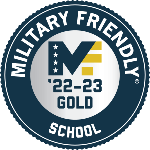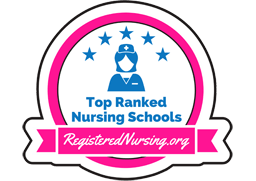IDEA Center
General Education and Institutional Accreditation:
How Your College Ensures Your Future
The Value of General Education Assessment and Accreditation to the College:
What the Core Curriculum provides for You as a student:
The Core Curriculum in the Connecticut State College & Universities (ConnSCU) System is designed not only to enable students to transfer from two-year community colleges to four-year baccalaureate institutions (both within the ConnSCU system), but also to ensure that the Associate’s Degree attained at your community college has merit and distinction in its own right.
The Transfer and Articulation Policy (under Connecticut State College & Universities (ConnSCU) System’s Statewide Initiatives) assures that ‘each Board of Regents institution that offers an undergraduate degree program shall develop its core curriculum consistent with the purpose adopted by the Board of Regents. The purpose of a core curriculum is to enable students to gain knowledge of human cultures and the physical and natural world across all academic areas. The goal of this education is that all graduating students are prepared to be world citizens. The idea of general education in America is to give students an integrated educational experience’.
How General Education Assessment helps to keep Your College Growing and Improving:
As an Accredited Institution, Three Rivers Community College has proven that students are afforded ample opportunities and avenues for success. The anonymous sampling of students’ coursework (collected through Digication) across the college provides Three Rivers the opportunity to evaluate and to gain insight into students’ progress through the ConnSCU General Education Core Curriculum as they work toward their degrees (Show me the General Education Rubrics upon which assessment is based).
Additionally, ‘while the certification of accreditation indicates an acceptable level of institutional quality, any institution, however excellent, is capable of improvement, which must come from its own clear identification and understanding of its strengths and weaknesses’ (NEASC; Role and Value of Accreditation, p.2; Let me read more about the Role and Value of Accreditation!)
General Education Assessment enables Three Rivers to evaluate itself as an institution and to obtain an accurate representation not only of where we are succeeding but also where and how we might better serve You, our students.
New England Association of Schools and Colleges Accreditation: Our Driving Force
While the New England Association of Schools and Colleges (NEASC) Institutional Accreditation does not only evaluate the academic offerings of an institution (student services, financial conditions, and administrative strength are also considered), educational integrity is nonetheless at the core of higher education institutional evaluations.
You, as a student, are essential in ensuring that Three Rivers is meeting and exceeding the requirements and academic standards of NEASC Accreditation. With your feedback, both through course evaluations and submission of General Education Artifacts, Three Rivers is better able to meet your needs now and in the future.
Visit the Three Rivers Institutional Accreditation Page to view additional information and reports.
The Value Accreditation provides to You:
- An assurance that the educational activities of an accredited institution or program have been found to be satisfactory, and therefore meet the needs of students;
- Assistance in the transfer of credits between institutions, or in the admission of students to advanced degrees through the general acceptance of credits among accredited institutions when the performance of the student has been satisfactory and the credits to be transferred are appropriate to the receiving institution;
- A prerequisite in many cases for entering a profession.
(NEASC; Role and Value of Accreditation, p.4; Let me read more about the Role and Value of Accreditation!)
Why Digication?
Without You, our students, there is no Three Rivers Community College. We endeavor to offer you the best community college experience and a high level of rewarding academic rigor. One way in which we do so is by providing you with access to the latest technologies and educational resources. Digication is a widely-used and highly regarded Electronic Portfolio (e-Portfolio) Platform which provides students with a means of electronically storing and cataloging their entire portfolio of coursework.
Digication allows you to create multiple e-Portfolios; not only can you use Digication for coursework and General Education Assessment, but you can also create personal and career e-Portfolios tailored specifically to you, which you can maintain even after you leave Three Rivers.
Digication is easy to master and simple to use. It has all the connectivity, file sharing, and online publishing tools teachers and students want. Designed by educators to serve the core needs of teachers and students, Digication opens the lines of communication by combining elements of e-Portfolios and learning networks. This software allows users to create a community that can learn and grow both inside and outside the classroom’ (From Digication Log-out page; Visit the Three Rivers Digication Page to access Digication how-to materials or to log-in to Digication).
What does it mean to be an ‘Educated Person’?
This is a challenging question. While it may not be controversial to say that quizzes and exams can be necessary and essential tools in the learning environment, it would not be prudent to claim that they are sufficient all on their own in determining what all students have learned and how they have grown as a student and as an individual. The core curriculum seeks to look beyond individual courses, and to provide students with a wide array of options for achieving skills that will be applicable not only in academia, but in their careers ahead; as an individual and as contributing member of our ever-expanding global society.
Originally printed in the journal The American Scholar, the essay ‘”Only connect…” The Goals of a Liberal Education‘ by William Cronon (Frederick Jackson Turner Professor of History, Geography, and Environmental Studies at the University of Wisconsin-Madison) enumerated ten qualities most admired in people ‘who seem to embody the values of a liberal education’:
- They listen and they hear.
- They read and they understand.
- They can talk with anyone.
- They can write clearly and persuasively and movingly.
- They can solve a wide variety of puzzles and problems.
- They respect rigor not so much for its own sake but as a way of seeking the truth.
- They practice humility, tolerance, and self-criticism.
- They understand how to get things done in the world.
- They nurture and empower the people around them.
- They follow E.M. Forster’s injunction from Howard’s End:’Only connect…‘
(From The American Scholar, Volume 67, No. 4, Autumn 1998. Copyright 1998 by William Cronon).
 TRCC EXTRANET
TRCC EXTRANET




